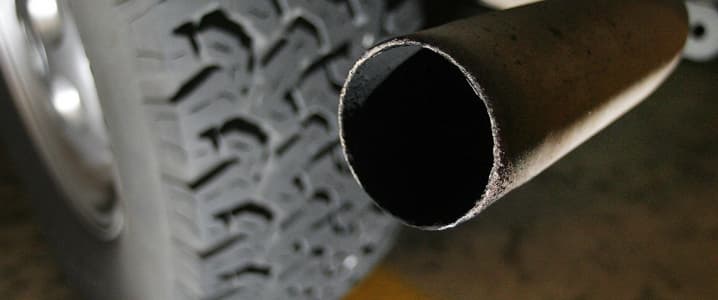A controversial proposal by the Trump administration to freeze greenhouse gas emissions standards at 2020 levels for all cars made between 2021 and 2026 could end up costing the economy US$400 billion through 2050 plus an increase in actual emissions, an energy policy firm has warned.
Using an open-source predictive modeling software, the Energy Policy Simulator, Energy Innovation found that although at first the freeze on emissions standards will lead to household savings since less fuel efficient cars are cheaper, it would ultimately increase costs as less fuel efficient cars also use more fuel. BY 2050, these are estimated at the hefty US$400 billion in 2018 dollars.
Of course, it won’t be just higher costs that will be the problem but also higher emissions with a freeze on standards. According to Energy Innovation, these will increase most in the 2030s, as after that, the company assumes EV sales will increase considerably, reducing the market share of cars with internal combustion engines, fuel efficient or not.
This future is dire but, in all fairness, it is highly uncertain it will pan out. For starters, carmakers themselves are not on board with the administration’s proposal. Four major companies—Ford, Volkswagen, Honda, and BMW—struck a deal with California regarding stricter fuel efficiency requirements last month, and they did it in secret as Washington is seeking to strip the nation’s biggest car market of the right to set its own rules.
Others might follow suit, not just with California but with raising their fuel efficiency standards amid changing public perceptions of what is acceptable in emissions and what isn’t. That’s despite an effort by the administration to motivate laxer fuel efficiency rules by suspending an Obama-era rule regarding penalties for excess fuel consumption.
Under the original rule, the companies making cars consuming more fuel than allowed under the emissions standards, would have to pay up to US$14 for every 0.1 mile per gallon of excessive fuel consumption. That, the industry calculated at the time, would cost it US$1 billion annually. Now, Trump plans to do away with those penalties and keep them at the current, much more modest level of US$5.50 for 0.1 mile per gallon. Related: Saudis Keeping Oil Exports Down To Combat Falling Prices
It was no surprise carmakers rejoiced at the news, first released last month. A billion dollars saved is a billion dollars earned. However, they may nevertheless continue working to make their cars more efficient. That’s because attitudes are changing.
A survey from the Yale Program on Climate Change Communication found that the number of Americans who are worried about climate change had risen. As much as 72 percent believe climate change is important to them, which is up from 42 percent five six years ago. Now, this may or may not affect actual car buying decisions, but if the trend continues, this change of attitude would at some point begin to affect these decisions, and carmakers are no doubt aware of that.
So, the administration’s drive to relax emissions rules may paint a bleak picture of the future, but there is no certainty at all that this bleak picture will materialize, not least because Trump has another term in office at most, and whoever comes after him, next year or in 2024, will more likely than not have a different attitude to climate change.
By Irina Slav for Oilprice.com
More Top Reads From Oilprice.com:
- Oil Craters On Fears of Currency War
- The Worst Is Still To Come In Energy Markets
- Saudis Scramble To Arrest Oil Price Slide



















Doubt me? Visit, 'South Main Auto Repair' on YouTube to see what kind of knowledge and intelligence it takes to diagnose some of the electrical problems. It is like trying to repair a Lunar Module. All that electronic engine control stuff is to reduce a small fraction of the pollution an internal combustion produces. Much of the other complex electronic stuff is only there to make the vehicle as light as possible, in order to meet fuel millage standards. All add thousands to the cost of vehicle ownership.
China and many other cheap labor countries are nothing but the sweat shops of the world. Quit telling me about the environment and pushing manufacturing to these un- environmental regulated countries.